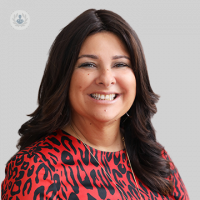Social anxiety disorder: what are the symptoms?
Written in association with:Social anxiety disorder (SAD) is the intense feelings of nervousness and anxiety in social situations. It’s a common problem that usually starts in children or during teenage years. One of our top neuropsychologists Professor Debora Elijah explains the symptoms to look out for in your child and how SAD can be prevented.

What is social phobia?
Social phobia is the intense fear of being judged or having intense anxiety, of the fear of being negatively evaluated, or rejected in a social or performance situation.
Is social phobia the same as social anxiety disorder (SAD)?
There is some distinction between the two. Social phobia is the fear of being judged and scrutinised whilst performing some task in public. Whilst social anxiety describes feelings of intense nervousness and self-consciousness that sufferers experience during one-on-one meetings or group social gatherings. The symptoms fall under the umbrella of SAD.
What are the typical symptoms of SAD?
Symptoms of social anxiety disorder may include:
- Fear of situations in which you may be judged
- Worrying about embarrassing or humiliating yourself
- Intense fear of interacting or talking with strangers
- Fear that others will notice that you look anxious
- Fear of physical symptoms that may cause you embarrassment, such as blushing, sweating, trembling or having a shaky voice
- Avoiding doing things or speaking to people out of fear of embarrassment
- Avoiding situations where you might be the centre of attention
- Having anxiety in anticipation of a feared activity or event
- Enduring a social situation with intense fear or anxiety
- Spending time after a social situation analysing your performance and identifying flaws in your interactions
How can SAD be prevented?
SAD can be minimised by early intervention for children. At The Elijah Centre, we use the PROSCIG® program, which focuses on three main areas: social perception, social problem-solving skills and self-monitoring.
Through structured explanations, games and activities in a group setting, children learn the necessary skills to help them make friends, assert themselves and stand up to bullying. By building their confidence, children experience reduced anxiety, enhanced self-esteem and self-awareness.
The groups are a safe place for children to 'test the waters', to take risks and to say and do things that might not be socially 'typical'. We moderate their communication and social behaviour by helping them to accept each other’s' strengths and weaknesses and to value their differences.
If you would like to discuss whether your child is experiencing symptoms of SAD, do not hesitate to book an appointment to see Dr Elijah by visiting her Top Doctors profile.


